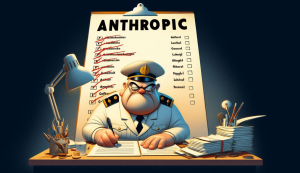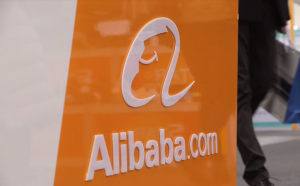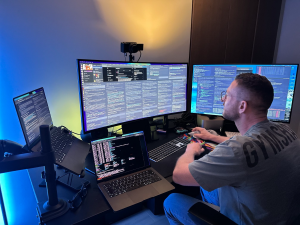Health Wizz unveils blockchain platform to give patients control of health data
Health Wizz today announced the upcoming launch of its blockchain-based solution designed to address the mounting problem of electronic health records and provide patients more power over their own health information.
Heath records are everywhere. They are produced whenever a person goes to the doctor, visits the emergency room or gets admitted to a hospital. Now data and records are also produced by smartphones and wearable devices as part of fitness routines or personal data collection driven by health apps, insurance companies and the healthcare industry.
In many cases, this information is stored by the entity that generates it and it’s difficult to share and aggregate. Doctor’s offices and hospital networks may provide patient portals for people to check on and export their data but regulations and privacy concerns make it difficult to intermingle information – especially because the single point of truth for health records is the user, who ultimately should control the constellation of their own health information.
“My mother was admitted to ER last year,” said Raj Sharma, chief executive officer of Health Wizz. “Doctors couldn’t find anything wrong. Shortly after, she was readmitted to another hospital. They repeated all of the tests because the first hospital would not share her medical records.”
That was a lot of time and money wasted, he added. “My mother is not alone,” he said “Testing redundancies add an estimated $25 billion to the nation’s healthcare costs.”
Using the Health Wizz platform, every patient would become the arbiter of his or her own medical records.
Each time medical records are produced – by a doctor’s appointment, ER visit, hospital intake or self-reporting app – the platform would standardize them using a specification known as Fast Healthcare Interoperability Resources.
Once done, the records are secured on the user’s own mobile devices in an encrypted space accessible only by that user’s own private cryptographic keys.
Sharma estimated that the average user would need approximately 10 gigabytes of encrypted data space on a mobile device to keep all of their records, an easy feat for most modern smartphones. Extremely large data footprint items – pictures of x-rays, magnetic resonance imaging and computed tomography scans – would be stored in their own encrypted containers on cloud systems such as Dropbox or Google Drive.
Users would then be able to give access to updated medical records to different institutions no matter where they went. All it would take is providing permissions through the Health Wizz platform for that particular provider to access specific information. These permissions could include a time window as well, after which the permit would expire and access would stop.
At no point would Health Wizz as an entity ever have direct access or traffic in patient medical information. All records would remain completely under personal control of patients at all times, protected locally by encryption and sharing managed with private communication.
In this way, Health Wizz can avoid many issues involving regulation and privacy laws involving healthcare records. Also, it fits the Health Wizz vision that users maintain and manage their own health records without worrying about the prying eyes of third parties.
Aside from giving control over their own health records, Health Wizz would also provide users a mechanism to make their medical data available to the industry. Pharmaceutical companies, medical data research firms and other businesses in the health care analytics industry constantly purchase data in bulk from providers and capture it residually from hospitals, doctors and other sources.
Using a digital ledger technology called the blockchain, Health Wizz believes that it can give patients even more control over how their medical data is used. Including the ability to sell access to that data to businesses and manage what, where, when and who has permission to access it. Furthermore, it also gives users the ability to make money on the use of their own records, something that is currently quite difficult to do.
By linking to the Ethereum blockchain – the second most powerful blockchain in the world – Health Wizz can allow users to build smart contracts that exchange a digital currency for access to their medical data. Ethereum, in particular, has a robust system for programmable agreements, called smart contracts, that can be used to exchange private keys for currency (using escrow and structured systems) that would control permission and access to specific parts of a user’s medical data.
With the Ethereum blockchain and smart contracts, the company would build a medical data marketplace where users could put up an offer for access to specific, anonymized medical data and biotechnology companies could then exchange currency for that access.
Sharma told SiliconANGLE that this system will be powered by its own specialized cryptocurrency, called Omcoin. These coins would serve as the backbone for the economy of that marketplace and users could redeem their earned currency for money or for services.
For example, a user who earned enough Omcoin could redeem it with a health insurance company for services, for health-related products from a pharmacy or anything else from underwear to shoes.
To power its system, Health Wizz today announced a pre-sale of its digital token, which will run from Nov. 30 until February 2018. The company intends to use this presale as funding to complete the development of its platform and augment already existing venture capital investments.
The formal launch of the platform will happen in March 2018.
Image: Health Wizz
A message from John Furrier, co-founder of SiliconANGLE:
Support our mission to keep content open and free by engaging with theCUBE community. Join theCUBE’s Alumni Trust Network, where technology leaders connect, share intelligence and create opportunities.
- 15M+ viewers of theCUBE videos, powering conversations across AI, cloud, cybersecurity and more
- 11.4k+ theCUBE alumni — Connect with more than 11,400 tech and business leaders shaping the future through a unique trusted-based network.
Founded by tech visionaries John Furrier and Dave Vellante, SiliconANGLE Media has built a dynamic ecosystem of industry-leading digital media brands that reach 15+ million elite tech professionals. Our new proprietary theCUBE AI Video Cloud is breaking ground in audience interaction, leveraging theCUBEai.com neural network to help technology companies make data-driven decisions and stay at the forefront of industry conversations.











